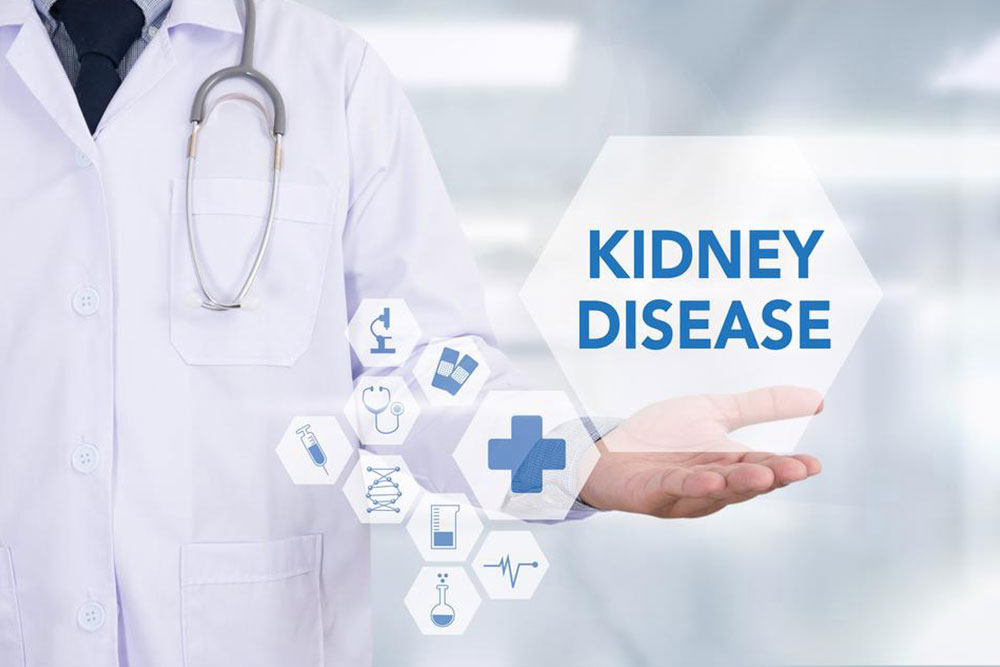Comprehensive Guide to Stage 3 Kidney Disease: Causes, Symptoms, and Management
This comprehensive guide explores stage 3 kidney disease, highlighting its causes, symptoms, early detection importance, and effective management strategies. Understanding these aspects empowers patients to take proactive steps, slow disease progression, and improve quality of life through lifestyle modifications, medical treatment, and regular monitoring. Recognizing warning signs early can prevent severe complications and enhance overall health outcomes, emphasizing the importance of proactive kidney health management.

Comprehensive Guide to Stage 3 Kidney Disease: Causes, Symptoms, and Management
Kidney health is vital for overall well-being, functioning as the body's natural filter to remove waste products and excess fluids. During the early stages of kidney disease, symptoms are often subtle or absent, making early detection challenging. However, by the time the disease progresses to stage 3, noticeable signs and symptoms typically emerge, requiring prompt medical attention to prevent further damage. Understanding the causes, recognizing the warning signs, and knowing how to manage this stage are crucial for patients and caregivers alike.
What is Stage 3 Kidney Disease?
Stage 3 chronic kidney disease (CKD) marks a moderate decline in kidney function, characterized by a glomerular filtration rate (GFR) between 30 and 59 milliliters per minute per 1.73 meters squared. In this stage, kidneys are functioning less efficiently, but the damage may still be reversible or manageable with appropriate interventions. The progression from early stages to stage 3 signifies an increased risk of complications, including cardiovascular disease, anemia, bone disorders, and fluid retention.
Why Is Early Detection in Stage 3 Important?
Detecting kidney dysfunction at stage 3 is vital because it allows healthcare professionals to implement therapies that can slow disease progression, improve quality of life, and reduce the risk of severe complications. Lifestyle modifications, medications, and regular monitoring form the cornerstone of management during this phase.
Causes and Risk Factors for Stage 3 Kidney Disease
Understanding the underlying causes that lead to stage 3 kidney disease can empower patients to take preventive measures and adhere to treatment plans. Several factors contribute to the decline in kidney function, with some causes being preventable or manageable with proper care.
Diabetes Mellitus: Elevated blood sugar levels damage the small blood vessels within the kidneys, impairing filtration ability and leading to progressive decline.
Hypertension (High Blood Pressure): Persistent high blood pressure exerts excessive force on vessel walls in the kidneys, causing deterioration over time.
Glomerulonephritis: An inflammatory disease affecting the glomeruli, the filtering units of the kidney, which can result from autoimmune conditions or infections.
Polycystic Kidney Disease: A genetic disorder characterized by the growth of numerous cysts within the kidneys, disrupting normal function.
Obstructive Uropathy: Conditions like kidney stones or enlarged prostate can block urine flow, causing back-pressure and damage.
Other Factors: Chronic infections, certain medications (nephrotoxic drugs), and lifestyle choices like smoking and poor diet can also contribute to declining kidney health.
Recognizing the Symptoms of Stage 3 Kidney Disease
Many individuals at stage 3 may not notice symptoms initially, especially if the decline in kidney function is gradual. However, certain signs often become evident and should prompt medical consultation.
Key Symptoms to Watch For:
Nausea, vomiting, and a persistent feeling of fatigue
Increased frequency of urination, especially at night
Foamy or bloody urine indicating protein or blood in urine
Swelling in the ankles, feet, or puffiness around the eyes caused by fluid retention
Additional symptoms include loss of appetite, a metallic or bland taste in the mouth, dry, itchy skin, and muscle cramps, particularly in the legs. Many patients also report experiencing shortness of breath and feeling unusually tired even with minimal activity.
Children and Kidney Disease: In pediatric cases, stage 3 kidney disease may manifest as delayed growth, developmental milestones, and fatigue, emphasizing the importance of early diagnosis and intervention.
Understanding the Causes Behind These Symptoms
The symptoms observed in stage 3 kidney disease stem from various underlying physiological changes due to reduced renal function. Recognizing these causes can help tailor specific treatments and management strategies.
Anemia and Feeling Cold: A decrease in erythropoietin production by damaged kidneys leads to reduced red blood cells, causing anemia. Symptoms include tiredness, weakness, and feeling cold even in warm environments.
Breathing Difficulties: Fluid buildup in lungs due to impaired filtration, or anemia reducing oxygen transport, results in shortness of breath with minimal exertion.
Dizziness and Weakness: Anemia decreases oxygen delivery to the brain and muscles, leading to dizziness, poor concentration, and muscle weakness.
Persistent Itching: Accumulation of waste products in the blood (uremia) causes irritations and dry skin, leading to discomfort and scratching.
Swelling and Puffiness: Inability to excrete excess fluids results in edema, particularly noticeable in legs, ankles, face, and hands.
Severe waste accumulation can lead to uremia, which interferes with digestion, causes nausea, and suppresses appetite. Therefore, early diagnosis and management are essential to prevent life-threatening complications.
Management and Treatment Strategies for Stage 3 Kidney Disease
While stage 3 kidney disease is serious, it can often be managed effectively with a comprehensive treatment plan aimed at slowing progression and alleviating symptoms. The key aspects of management include lifestyle modifications, medications, and regular health monitoring.
Lifestyle Changes: Adopting a kidney-friendly diet low in sodium, potassium, and protein; maintaining a healthy weight; avoiding smoking; and limiting alcohol intake can significantly impact disease progression.
Medications: Blood pressure-lowering drugs like ACE inhibitors or ARBs are commonly prescribed to protect kidney function. Additionally, medications to manage anemia, bone health, and cardiovascular risks are used as needed.
Monitoring: Regular blood tests to assess kidney function, blood pressure, and other related parameters are vital for adjusting treatment plans timely.
Addressing Complications: Managing symptoms such as edema with diuretics, correcting anemia, and treating underlying causes are fundamental to improving patient outcomes.
In some cases, patients may require dialysis or transplantation when kidney function declines critically. However, early intervention can delay or prevent the need for these invasive procedures.
Collaborative Care: A team of nephrologists, dietitians, and primary care providers plays a crucial role in developing a personalized management plan for each patient, emphasizing adherence and early detection of worsening conditions.
Living Well with Stage 3 Kidney Disease
Patients diagnosed with stage 3 CKD can lead active, meaningful lives with appropriate care and lifestyle adjustments. Education about the condition, understanding treatment options, and maintaining regular medical check-ups are key to managing symptoms and preventing progression.
Support groups and counseling can also assist patients in coping mentally and emotionally with their diagnosis. Staying informed about new therapies and participating in ongoing research can help improve quality of life and disease outcomes.
In conclusion, stage 3 kidney disease is a critical juncture in kidney health that requires vigilance, proactive management, and lifestyle changes. Recognizing early signs and seeking timely medical intervention can make a significant difference in maintaining kidney function and overall health.





